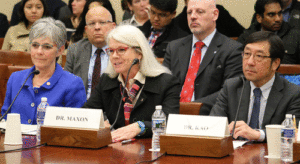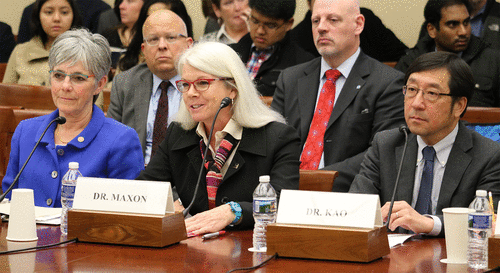In a Perspective published in the American Society for Cell Biology journal Molecular Biology of the Cell, Associate Laboratory Director for Biosciences Mary Maxon reflected on her unconventional career path from a PhD in molecular cell biology, through diverse roles in academia, industry, nonprofit, and government, to her current position.

ALD for Biosciences Mary Maxon has testified twice to the U.S. House of Representatives Committee on Science, Space, and Technology: here on March 14, 2018, in a session on world-leading innovations in science from the Department of Energy’s national labs. (Credit: House Committee on Science, Space, and Technology—Majority)
“Earning a STEM (science, technology, engineering, and mathematics)-related PhD means developing a deep, specialized knowledge in a specific scientific or engineering discipline. And it also forces you to develop multiple conceptual and methodological approaches to address complex problems. These assets, especially the latter, are useful in a wide variety of disciplines,” she wrote. “For me, the ability to apply the scientific method and the evidence-based decision-making skills I learned in graduate school have been essential components for my success in a wide variety of positions in a number of research-related sectors.”




